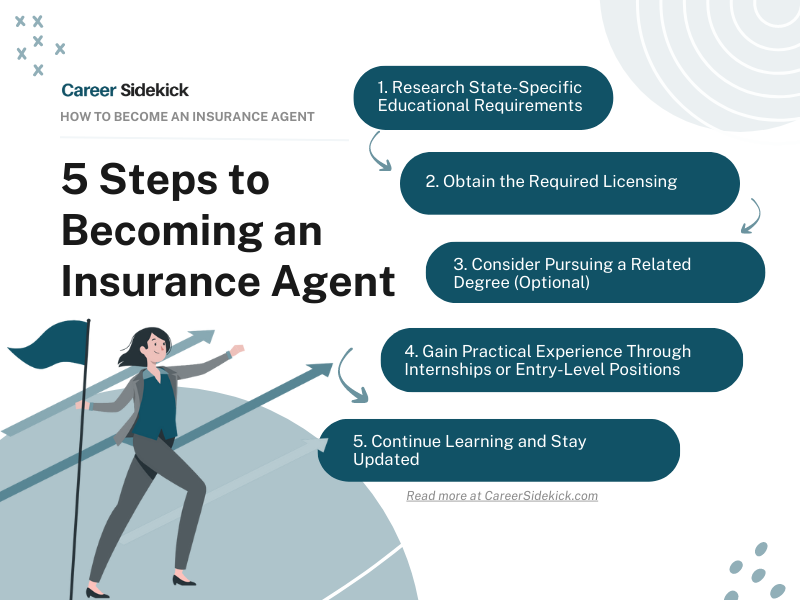Essential Guide to How to Become a Life Insurance Agent in 2025
Becoming a life insurance agent is a fulfilling career path that can lead to financial success and personal satisfaction. As the industry evolves, it’s essential to equip yourself with the necessary skills and knowledge to thrive. This guide covers everything from life insurance licensing to advanced sales techniques to help you navigate your journey in the insurance field.
Understanding Life Insurance Basics
Before diving into the specifics of how to become a life insurance agent, it is crucial to grasp the fundamentals of life insurance itself. Types of life insurance include term, whole, and universal life policies, each serving different needs for clients. Understanding these life insurance products empowers agents to provide comprehensive options tailored to clients’ financial goals and family needs. Equip yourself with knowledge about both the benefits and limitations of each policy type to enhance your selling techniques and client consultations.
Types of Life Insurance Policies
Life insurance can be broadly categorized into various types. Term life insurance offers coverage for a specified term and is often more affordable, making it a popular choice among young families. Whole life insurance, on the other hand, provides lifelong coverage with a cash value component, which can be an attractive option for those seeking to build wealth over time. Additionally, universal life insurance integrates flexibility, allowing policyholders to adjust their premiums and death benefits as their needs change. By understanding these differences, agents can recommend policies that align with clients’ long-term financial strategies.
Importance of Life Insurance Benefits
The benefits provided by life insurance extend beyond just a payout upon death. They include options such as living benefits, which allow policyholders to access their death benefit in certain circumstances, such as terminal illness. Other benefits may involve savings components that grow over time and can be borrowed against or withdrawn. Understanding these intricate details helps agents in offering well-rounded advice and enhances client satisfaction through tailored policy recommendations.
Functions of Life Insurance in Financial Planning
Life insurance is not merely an expense but an essential component of overall financial planning. Its role in estate planning, income replacement, and debt coverage can never be overstated. Agents should learn how to articulate how these policies can protect clients’ loved ones and contribute to wealth accumulation strategies. This level of understanding fosters greater trust and rapport with clients, essential qualities for building lasting client relationships.
Life Insurance Agent Requirements
To become a successful life insurance agent, knowledge is power, but it’s not enough — you must also meet specific life insurance agent requirements that vary by state. Most states mandate a valid insurance license, which involves taking pre-licensing courses and passing a licensing exam, ensuring that agents possess the necessary knowledge to advise clients effectively. Further, certain states may require ongoing continuing education, which is vital in navigating industry regulations and staying competitive in the field.
Obtaining Your Life Insurance License
The initial step in becoming a life insurance agent is obtaining a licensing credential. Each state has unique guidelines and regulations regarding educational prerequisites and licensing exams. Typically, prospective agents must complete a given number of hours in pre-licensing courses, covering essential topics such as insurance compliance, ethics, and specific product knowledge. Thus, following the right path ensures you not only pass the examination but also enter the field well-armed with relevant knowledge.
The Role of Continuing Education
Continuing education for agents is critical as it enables them to stay current with industry trends, policy changes, and compliance requirements. Many states mandate ongoing education to keep licenses active, reinforcing the importance of staying informed on critical legislative and practical developments in life insurance products and services. This commitment to lifelong learning enhances agent credibility and strengthens their ability to serve clients effectively.
Commissions in Life Insurance
One of the appealing aspects of a career as a life insurance agent is the compensation structure. Commissions in life insurance can vary widely, with some agents earning substantial incomes based on performance. Agents typically earn their commissions not only based on sales but also through renewal bonuses as long as their clients maintain their policies. Understanding these commission structures is vital, allowing aspiring agents to set realistic insurance sales goals and adopt effective pursuit strategies.
Strategies for Successful Insurance Sales
Equipping yourself with top-tier life insurance sales techniques can dramatically enhance your career trajectory. Mastering sales presentations, client prospecting, and closing techniques leads to a robust pipeline of clients and recommendations from satisfied customers. Here, we will explore essential methodologies that every agent should learn to thrive in the competitive insurance landscape.
Effective Communication Skills for Agents
Effective communication for agents goes beyond simply relaying information; it includes active listening, rapport-building, and developing a keen understanding of client psychology. Agents should embrace emotional intelligence and apply persuasive selling techniques as part of their toolkit. Tailoring your communication approach based on individual clients’ needs significantly influences client trust and is fundamental for securing sales.
Networking for Insurance Agents
Networking opportunities hold substantial weight in an insurance agent’s career. Building solid relationships within the industry provides referral channels and can lead to partnerships that bolster businesses. Whether through community involvement, industry seminars, or leveraging social media, agents should continuously seek avenues to expand their contact base and build a reputation as a reliable expert in the insurance field.
Handling Objections Professionally
Overcoming objections in sales is a common challenge that requires patience and refined skills. An effective strategy involves anticipating clients’ concerns and preparing to address them proactively. Training yourself in conflict resolution and understanding potential buyer reluctance upfront enhances your credibility when navigating these hurdles. Properly handling such challenges not only cements client relationships but also bolsters the chances of generating repeat business.
Key Trends and Technologies in Life Insurance
The life insurance industry is rapidly evolving due to technological advancements and changing market dynamics, making it essential for agents to stay updated on life insurance market trends. By learning about digital marketing tools and analytics, agents can tap into new methods of reaching potential clients while enhancing retention and service quality. Understanding these changes allows agents to tailor their strategies proactively, ensuring resilience against market fluctuations.
Preparing for Change in the Insurance Market
Insurance market research is crucial in navigating changes within the industry. Keeping tabs on shifting consumer behaviors, competitors’ strategies, and emerging technologies positions agents favorably. Furthermore, exploring technological advancements such as artificial intelligence and analytics fosters motivation and efficiency in sales processes while reinforcing customer engagement strategies.
Leveraging Technology for Sales Optimization
Implementing technology tools enhances various aspects of insurance sales, including marketing, client tracking, and policy comparisons. Utilizing powerful Customer Relationship Management (CRM) systems streamlines client data management, enabling agents to craft personalized service techniques more effectively. Such tools improve >insurance client retention by helping agents stay connected and offer relevant products that meet evolving client needs.
Digital Marketing Strategies for Life Insurance
Incorporating digital marketing for agents is becoming a necessity in the modern insurance landscape. Platforms like social media and email marketing campaign tools present powerful channels for outreach and engagement. Harnessing these platforms allows agents to craft customized marketing content aimed at lead generation while enabling them to build personal branding that resonates with targeted audiences.
Key Takeaways
- Understand the different life insurance policy types to better meet your clients’ needs.
- Compliance with state-specific life insurance licensing is crucial for establishing credibility.
- Mastering sales techniques such as objection handling and effective communication will significantly enhance client relationships.
- The insurance industry is evolving; staying updated on market trends and technologies is essential for long-term success.
- Utilize digital marketing strategies to broaden your reach and foster client engagement.
FAQ
1. What are the main duties of a life insurance agent?
A life insurance agent’s primary responsibilities include educating clients about different types of policies, analyzing clients’ financial needs, underlining the importance of coverage, presenting insurance options, and assisting with the application process. Agents also follow up with clients to ensure satisfaction and retention while adhering to ethical practices in insurance.
2. How can I build a client base as an insurance agent?
Building a client base as an insurance agent involves developing effective networking strategies, engaging in community activities, seeking referrals from current clients, and tapping into digital marketing efforts. Furthermore, maintaining strong customer service in insurance is vital; existing clients may provide valuable word-of-mouth referrals, enhancing reputation and generating leads.
3. What are the different types of life insurance coverages?
The common types of life insurance coverages include term life insurance, which lasts for a set period; whole life insurance, which provides coverage for the life of the insured; universal life insurance, which offers flexibility in premiums and death benefits. This varied coverage allows agents to tailor policies according to individual client needs and preferences.
4. How does effective communication impact life insurance sales?
Effective communication vastly enhances not only client relationships but also sales outcomes. By utilizing active listening and articulating value propositions clearly, agents foster client trust, leading to successful transactions and ongoing partnerships. Additionally, strong communication skills improve understanding around complex policy terms and details, increasing clients’ confidence in their decisions.
5. What digital marketing tools should insurance agents leverage?
Insurance agents should consider using Customer Relationship Management (CRM) tools, email marketing platforms, and social media management software to streamline outreach. Engaging web content, modern email campaigns, and active social media presence allow agents to connect effectively with their audience,, increasing overall visibility and prospects in the fast-paced insurance landscape.


